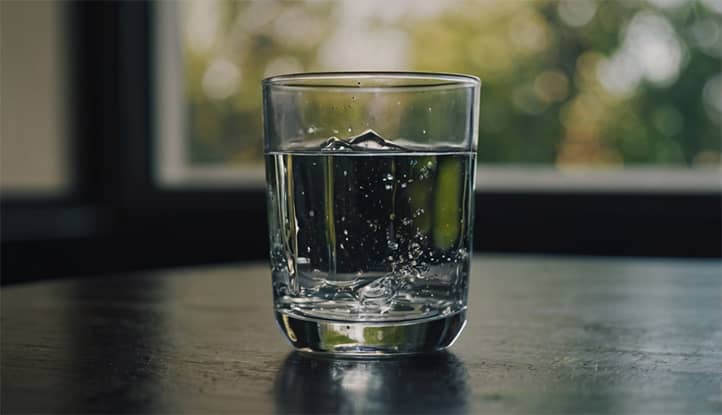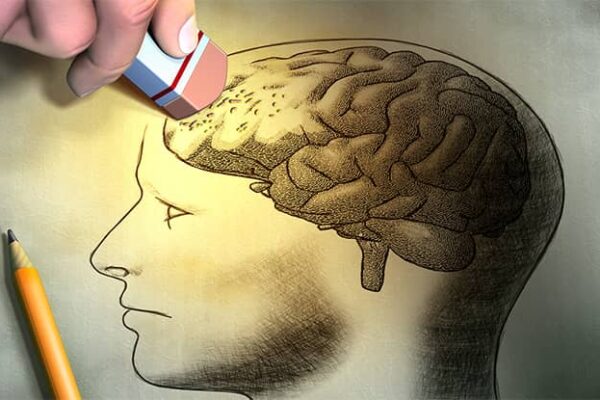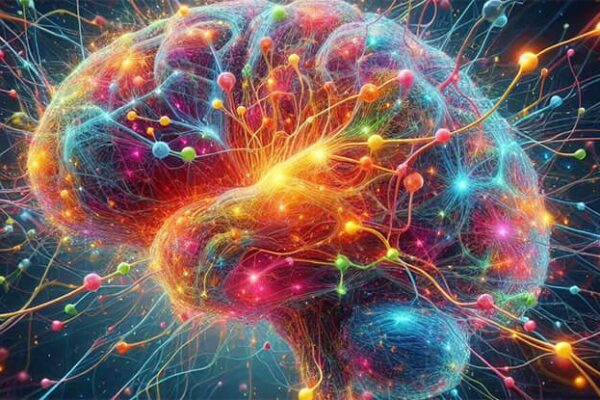Water is the basis of life on our planet, playing a critical role in the functioning of every cell in our bodies. When we talk about hydration, we mean the process of saturating the body with water to maintain optimal water balance. Most people understand the importance of water for physical health, yet often overlook its influence on our psychological well-being.
Before delving into the psychological aspects, let’s revisit the physical significance of water. It helps regulate body temperature, aids in detoxification, transports nutrients to cells, and supports the functioning of all body systems.
However, water’s impact on our body goes far beyond physical health. Let’s explore how hydration affects our psychological state and cognitive functions.
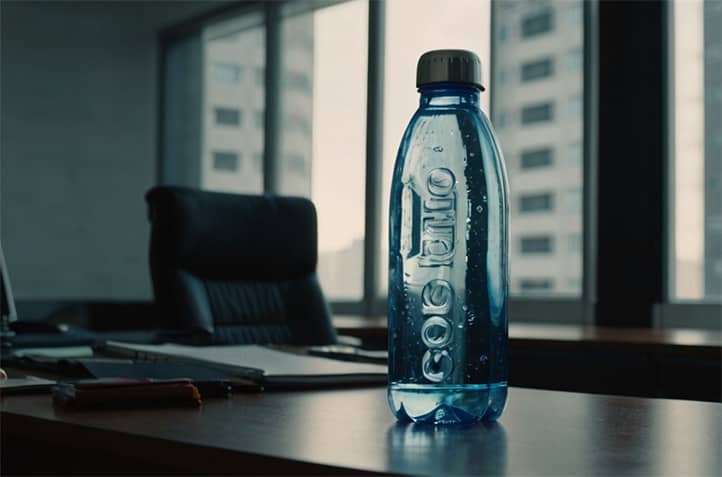
The Impact of Hydration on Cognitive Functions
Our brain consists of approximately 75% water. This fact alone illustrates how critical hydration is for optimal brain function. Studies show that even mild dehydration can significantly impair our cognitive abilities.
Improving Concentration and Focus
One of the most noticeable effects of proper hydration is improved concentration and focus. When we’re well-hydrated, our brain receives enough oxygen and nutrients, allowing us to stay focused on tasks.
A study published in the *Frontiers in Human Neuroscience* journal found that increasing water intake can significantly improve performance in cognitive tasks, especially those requiring sustained concentration.
- Tip: If you feel your focus drifting during work or study, drink a glass of water. This will help “reset” your brain and restore your focus.
Enhancing Reaction Speed
Hydration also affects reaction speed. When the body is adequately hydrated, electrical signals in the brain transmit more efficiently. This is especially important in situations that require quick decision-making or in sports.
A study conducted by researchers at Loughborough University in England found that even mild dehydration (a loss of only 1-2% of body weight as water) can significantly reduce reaction speed and accuracy in tasks requiring attention and psychomotor skills.
Improving Memory
Memory is another cognitive function that strongly depends on hydration levels. Studies show that good hydration improves both short-term and long-term memory.
An experiment conducted at the University of East London demonstrated that students who drank water during exams performed better than those who did not. Researchers suggested that this is related to improved functioning of the hippocampus, the part of the brain responsible for forming new memories.
- Tip: Before important meetings, presentations, or exams, make sure you’re well-hydrated. This will help you remember and recall information more effectively.

Hydration and Emotional State
The impact of hydration on our emotional state is often underestimated, yet studies show that water balance can significantly affect our mood and emotional stability.
Reducing Stress Levels
Stress is an inherent part of modern life, but proper hydration can help you manage it better. When we’re dehydrated, our body produces more cortisol, the stress hormone. A study published in the *Psychophysiology* journal showed that even mild dehydration can lead to an increase in cortisol levels.
Adequate water intake helps maintain optimal cortisol levels, which, in turn, contributes to better stress management. Moreover, the act of drinking water can serve as a calming ritual, helping us pause and reset during stressful moments.
- Tip: Keep a bottle of water on your desk and take small breaks to drink water, especially in stressful situations. This will help you stay calm and focused.
Enhancing Mood
Hydration plays an important role in regulating neurotransmitters—chemical substances that influence our mood. Studies show that even mild dehydration can negatively affect mood.
An experiment at the University of Connecticut found that participants who were slightly dehydrated reported feeling more fatigued, tense, and anxious than those who were well-hydrated.
On the other hand, maintaining optimal hydration levels can promote a more positive mood. This effect is linked not only to physiological processes but also to the psychological effect of self-care.
Reducing Irritability
Irritability is often the first sign of dehydration. When the body lacks water, it causes discomfort and tension, which manifest as increased irritability.
A study published in the *Journal of Nutrition* showed that even mild dehydration (about a 1.5% loss in fluids) can lead to worsened mood, increased fatigue, and headaches, which in turn heighten irritability.
- Tip: If you notice yourself becoming unreasonably irritable, drink a glass of water. This can quickly improve your emotional state.
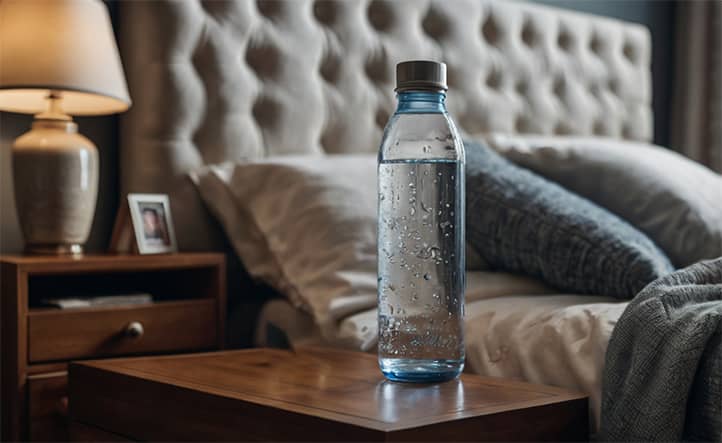
Hydration and Sleep Quality
Sleep is the time when our body recovers, processes information, and prepares for the new day. However, few consider how hydration levels affect the quality of nighttime rest. Water plays a key role in regulating body temperature, which is crucial for healthy sleep.
Interestingly, the connection between hydration and sleep works in both directions. Not only can a lack of water disrupt sleep, but poor sleep can also lead to dehydration. This creates a potentially harmful cycle that can negatively impact overall health and well-being.
Effect on Circadian Rhythms
Circadian rhythms, or our internal biological clock, regulate many processes in the body, including the sleep-wake cycle. Hydration plays an important role in maintaining these rhythms.
Research shows that hydration levels in our body affect melatonin production—the hormone that regulates sleep. Proper hydration throughout the day promotes more efficient melatonin production in the evening, helping us fall asleep and sleep well.
However, it’s important to note that excessive fluid intake right before bed can disrupt your rest due to the need to visit the bathroom at night. Therefore, it’s recommended to gradually reduce water intake a few hours before bedtime.
Improving Sleep Quality and Duration
Proper hydration can significantly improve sleep quality. When we’re well-hydrated, our body better regulates temperature, which is crucial for good sleep. Additionally, sufficient water in the body promotes better blood circulation, positively affecting the quality of nighttime rest.
A study published in the *Sleep* journal found that people who were well-hydrated slept an average of 1-2 hours longer than those who were dehydrated. Additionally, they woke up less frequently at night and felt more refreshed in the morning.
- Tip: Try to evenly distribute your water intake throughout the day, gradually reducing the amount of fluid intake 2-3 hours before bedtime. This will help you stay hydrated without disrupting your nighttime rest.

Social Aspects of Hydration
Water is not just essential for survival but also a powerful social catalyst. Since ancient times, water sources have served as gathering places for sharing news and strengthening community bonds. In the modern world, this tradition has evolved but remains significant.
The culture of water consumption can differ considerably across societies and social groups. In some cultures, offering water to a guest is seen as a sacred act of hospitality, while in others, it may be perceived as routine. These differences reflect deep-seated cultural values and social norms.
The Ritual of Drinking Water as a Form of Self-Care
In today’s world, where stress and tension have become the norm, simple acts of self-care hold special importance. Regular water consumption can become such a ritual, reminding us of the need to take care of our health.
Psychologists note that creating and maintaining healthy habits, like drinking water regularly, can boost self-esteem and enhance one’s sense of control over life. This is especially important during periods of stress or uncertainty.
- Tip: Try linking drinking water with pleasant moments in your day. For example, drink a glass of water while enjoying the view from your window or listening to your favorite music. This can help make hydration a pleasant ritual of self-care.
Impact on Social Interaction
Hydration plays an important role in social interaction, especially in workplaces or educational settings. Water breaks provide a natural opportunity for brief social contacts, helping build and strengthen relationships with colleagues, classmates, or peers.
Research from the University of East Anglia shows that short breaks at work, including water breaks, boost productivity and improve social connections between employees. This, in turn, increases overall job satisfaction and reduces stress.
Moreover, drinking water together can serve as a healthy alternative to less beneficial social rituals like smoking, drinking alcohol, or consuming sugary drinks. This helps foster a culture of health-conscious communication and care within social groups.
- Tip: Suggest to colleagues or friends a “water challenge” – a mutual commitment to drink enough water every day. This can become a fun and beneficial social experiment.

Psychological Effects of Mindful Water Consumption
Mindfulness – the practice of being fully present in the moment – can be applied even to a simple activity like drinking water. When we drink water mindfully, we not only meet a physiological need but also create a moment of pause in our often chaotic daily lives.
Interestingly, mindful water consumption serves as an “anchor” for our attention. In times of stress or anxiety, the simple act of drinking a glass of water with full awareness can help us return to the present moment and restore emotional balance.
Enhancing Self-Control
Regular and mindful water consumption can become an exercise in self-control and discipline. Psychologists note that the ability to stick to simple yet beneficial habits, like drinking water regularly, strengthens overall self-control.
A study published in Psychological Science found that people who successfully form and maintain one positive habit (such as regular water consumption) are more likely to adopt other beneficial habits.
Building Healthy Habits
Mindful water consumption can be the starting point for developing other healthy habits. When we begin to pay attention to our hydration, we often become more mindful of other aspects of our health and well-being.
This phenomenon is known in psychology as the “snowball effect” – one small positive habit can lead to the formation of other, more significant lifestyle changes.
- Tip: Start by setting water-drinking reminders on your phone. Gradually, you can add other healthy habits like short stretches or moments of meditation, linking them to your water-drinking routine.
Improving Body Image and Health Awareness
Mindful water consumption can lead to an improved attitude toward one’s body and health. When we begin to listen to our body’s needs for water, we often become more attentive to other signals from our body.
Research shows that people who practice a mindful approach to their health, including regular hydration, often report higher levels of body satisfaction and overall well-being.
Furthermore, mindful water consumption can become a form of meditative practice. Paying attention to the sensations while drinking water allows us to practice mindfulness and presence in the moment, which has numerous psychological benefits.
- Tip: Practice “mindful drinking.” Before drinking water, take a deep breath. Notice the sensations in your body before, during, and after drinking. This simple exercise can help foster a deeper connection with your body and its needs.

Practical Tips for Improving Hydration
The human body is a remarkable self-regulating system, but sometimes it needs help in forming beneficial habits. Hydration is not just a matter of the amount of water consumed, but also of its quality, timing, and even the manner in which we drink it.
In a world where we are constantly surrounded by various beverages – from coffee to sodas – it’s important to remember simple, clean water. Interestingly, our taste for water can change and develop, similar to our taste for complex wines or fine dishes. By learning to appreciate clean water, we can discover a new level of enjoyment and care for our health.
Ways to Remind Yourself to Drink Water
- Use Technology: There are many smartphone apps that help track water intake and remind you to drink. Choose one that best suits your lifestyle.
- Visual Cues: Keep a water bottle in a visible place, like on your desk or bedside table. Simply seeing the water can serve as a reminder to drink.
- Link to Daily Actions: Associate drinking water with certain actions throughout the day. For example, drink a glass of water upon waking, before each meal, or after each bathroom break.
- Social Reminders: Arrange with a friend or coworker to remind each other to drink water. This will not only keep you both hydrated but also strengthen social bonds.
Creating a Pleasant Hydration Environment
- Choose Nice Dishware: Use a beautiful or comfortable water bottle or glass that brings positive emotions. This will make drinking water more enjoyable.
- Experiment with Flavor: If you find it challenging to drink plain water, try adding slices of fruit, berries, or herbs for natural flavor. This can make hydration more interesting and enjoyable.
- Create a Ritual: Turn drinking water into a pleasant ritual. For instance, each time you drink water, take a deep breath and mentally thank yourself for caring for your health.
- Experiment with Temperature: Experiment with water temperature. Some people prefer cold water, while others enjoy room temperature or even warm water. Find what’s most comfortable for you.

Conclusion
Hydration is a fundamental aspect of human existence, deeply impacting all areas of life – from physical health to emotional well-being and social interactions. Proper water consumption plays a key role in supporting the optimal functioning of both body and mind.
Sufficient water intake significantly affects cognitive functions. Improved concentration, memory, and reaction time are just a few of the benefits of proper hydration. In a modern world where mental productivity is often a key to success, maintaining hydration becomes an important tool for enhancing efficiency.
Moreover, hydration is closely linked to emotional stability. The right water balance aids in better stress management, mood elevation, and reduced irritability. In the context of the growing importance of emotional intelligence, the ability to regulate and control emotions through the simple practice of proper hydration is of particular value.
Sleep quality, crucial for overall well-being, also depends on hydration levels. Optimal hydration helps with easier sleep onset, increases the duration of deep sleep stages, and supports more effective recovery during nighttime rest.
Equally important are the social aspects of hydration. Water plays a significant role in social interactions, from simple work breaks to deep cultural traditions. A mindful approach to water consumption can become a tool for strengthening social connections and improving interpersonal relationships.
Mindful water consumption unlocks new horizons of psychological benefits. It serves as an effective way to enhance self-control, develop beneficial habits, and improve body image and overall health awareness.
Integrating proper hydration into daily life is a process that takes time and patience. Starting can be simple: drink a glass of water every morning. Gradually increasing water intake, combined with attentiveness to your body’s signals, will help you reach an optimal hydration level.
It’s important to remember that building a new habit is a journey where every step matters. Even small changes in water consumption can lead to noticeable improvements in well-being, mood, and cognitive function.
In the end, hydration is not just a physiological necessity but an opportunity to improve physical and psychological health, social interactions, and overall quality of life. A mindful approach to water consumption is the key to becoming a better version of oneself, fostering well-being, clarity of thought, and emotional stability.
